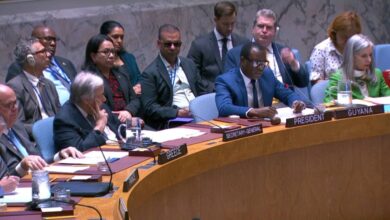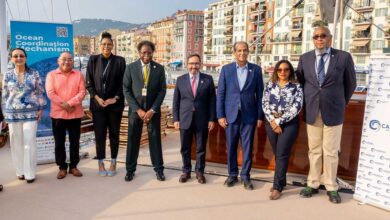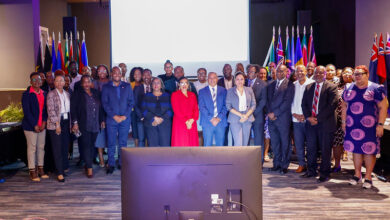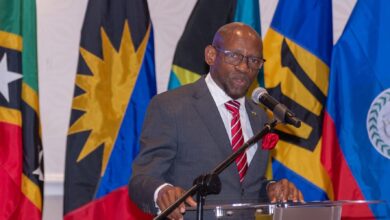The Caribbean Region faces existential threats, including biodiversity loss which continue to be a major challenge for global leaders and conservationists. Many plant and animal species in the Region are critically endangered, including the Grenada dove, the hawksbill turtle, the Antiguan racer, and the Saint Lucian racer—the rarest snake in the world. These are just a few among the over 200 critically endangered species of mammals, birds, reptiles, amphibians, fish, and plants in the Caribbean Region.
Conserving biodiversity is fundamental to sustaining life on Earth. Biodiversity is crucial to produce essential medicines, food and water security, climate change adaptation and mitigation, cultural values, and economic development, making it indispensable to achieving a sustainable future. This recognition is crystallized in the United Nations Convention on Biological (UNCBD) which will be convening the 16th Conference of Parties on Biological Diversity (COP 16), 21 October–1 November in Cali, Colombia.
A regional workshop to prepare Caribbean negotiators to effectively participate in COP 16 will be held in Miami, Florida, from 11 – 13 September.
The workshop is organised under the Caribbean Hub of the Project for Capacity Building for Multilateral Environmental Agreements (MEAs) in African, Caribbean, and Pacific (ACP) Countries. The three-day session will be coordinated by the CARICOM Secretariat in partnership with the Organisation of Eastern Caribbean States (OECS) Commission’s European Union (EU)-funded Biodiversity Support Programme for ACP Coastal Environments – BioSPACE Project, and the Caribbean Biodiversity Fund’s (CBF) Effective Marine Protected Area Activities for the Caribbean (EMPAC) Project.

At COP 16, governments will review the state of implementation of the Kunming-Montreal Global Biodiversity Framework. Parties to the Convention are expected to demonstrate the alignment of their National Biodiversity Strategies and Action Plans (NBSAPs) with the Framework. COP16 will also address critical issues such as the monitoring of and resource mobilization for the implementation of the Global Biodiversity Framework.
To this end, the regional workshop will apprise participants of the COP 16 agenda and the issues that will be discussed and negotiated, and enable them to identify and analyse issues most relevant to their national and/or regional interests. It will facilitate the development of national and/or regional positions on key COP 16 agenda items by allowing discourse among participants.
Participation in COP 16 is essential for the Caribbean Region to be able to advocate for stronger international commitments to biodiversity conservation, secure resources for protecting its ecosystems, and collaborate on global strategies to preserve its natural heritage. By being involved, the Region can ensure that its specific challenges and needs are considered in global biodiversity policies, enhancing its resilience and sustainability.
Global meetings such as COP 16 provide the framework for the people of the Region to effectively protect and manage their biodiversity.
Editor’s Note
The Kunming-Montreal Global Biodiversity Framework
The Kunming-Montreal Global Biodiversity Framework (GBF) was adopted during the fifteenth meeting of the Conference of the Parties (COP 15) following a four-year consultation and negotiation process. This historic Framework, which supports the achievement of the Sustainable Development Goals and builds on the Convention’s previous Strategic Plans, sets out an ambitious pathway to reach the global vision of a world living in harmony with nature by 2050. Among the Framework’s key elements are four goals for 2050 and 23 targets for 2030.
In adopting the Kunming-Montreal Global Biodiversity Framework, all Parties committed to setting national targets to implement it, while all other actors have been invited to develop and communicate their own commitments.






